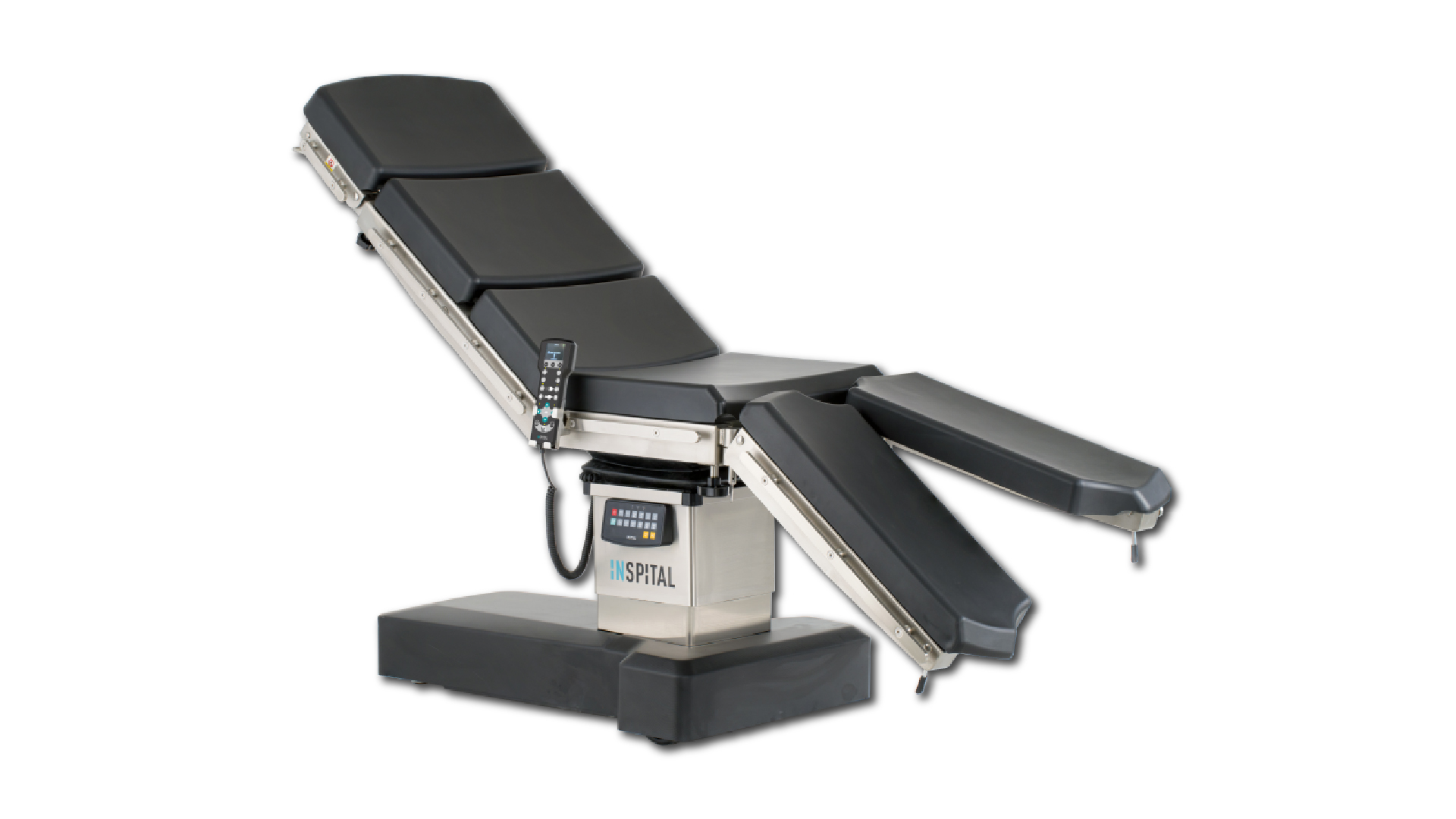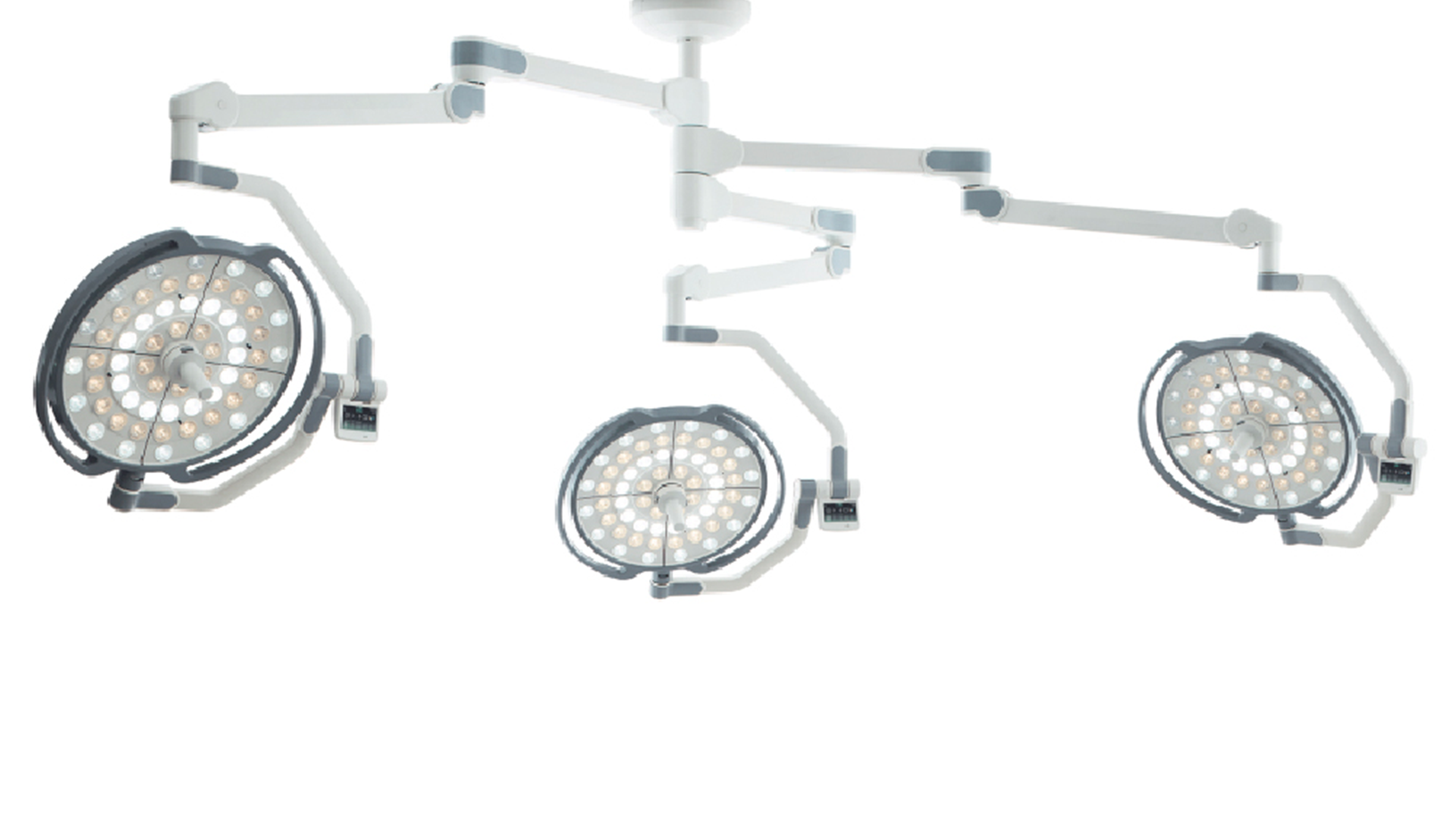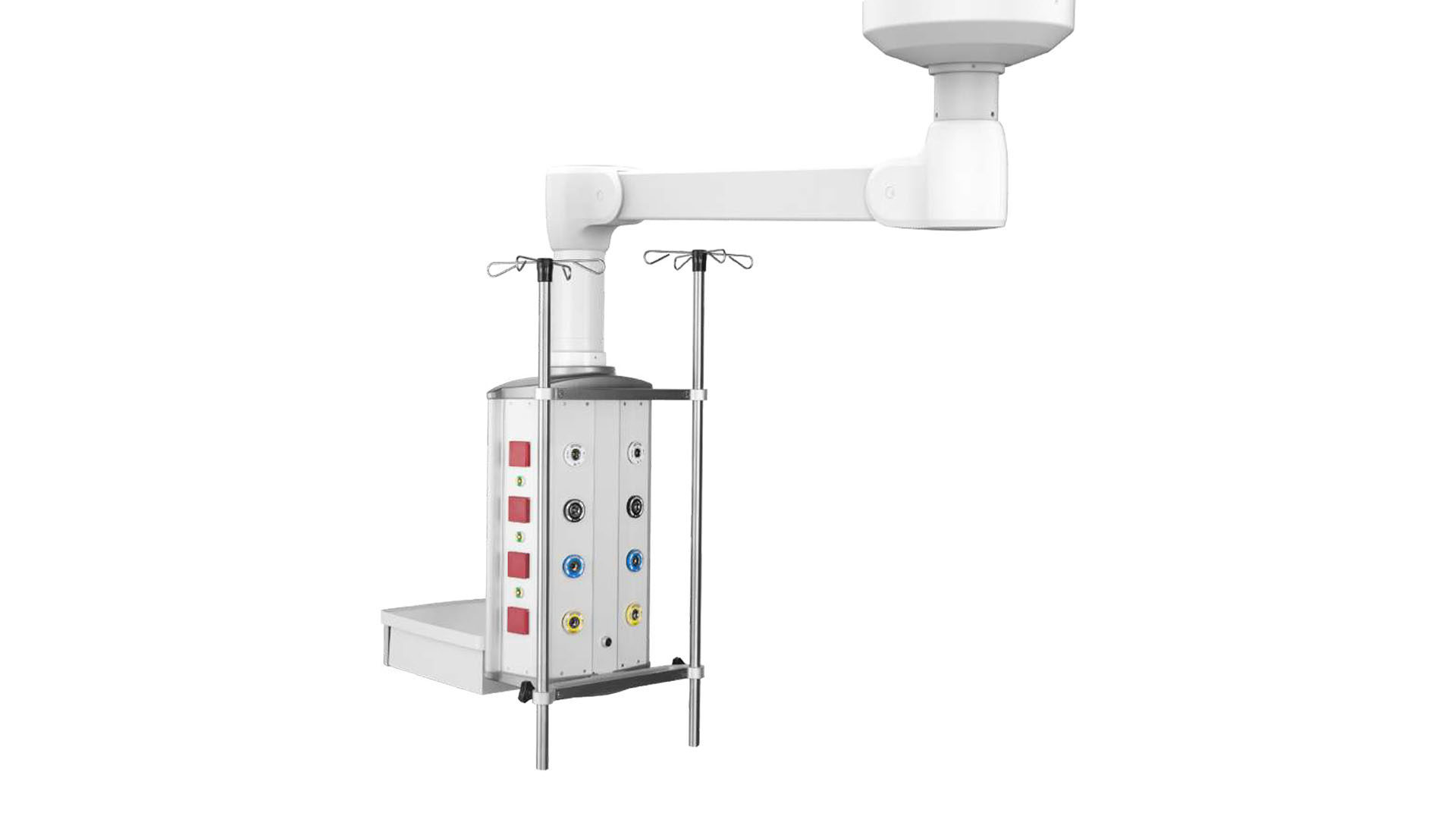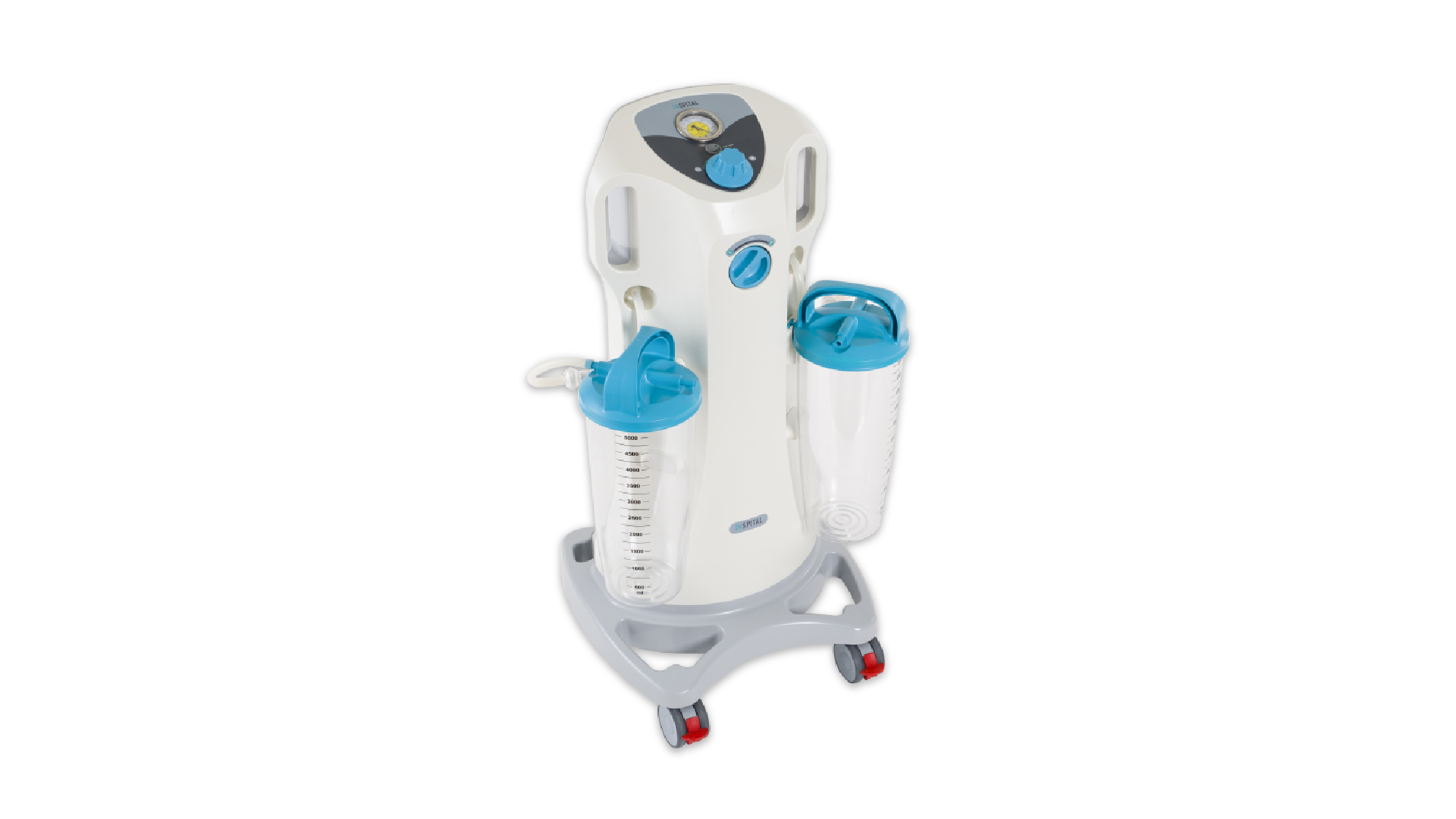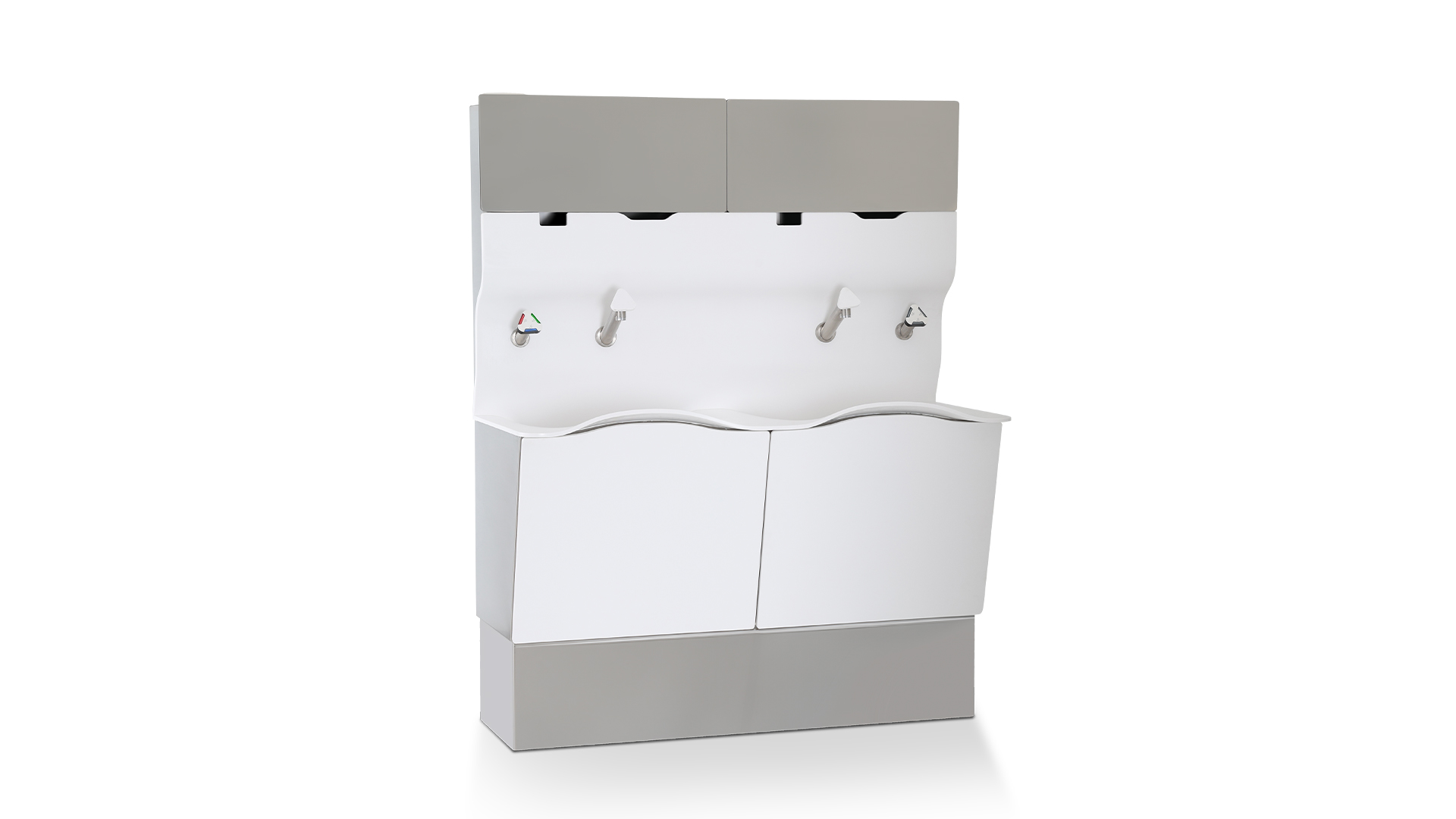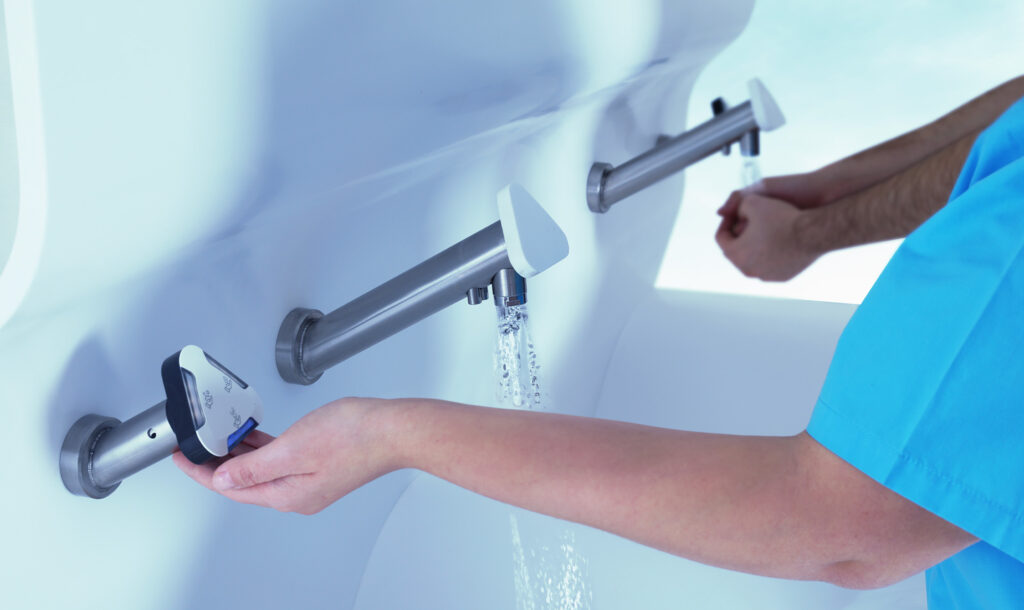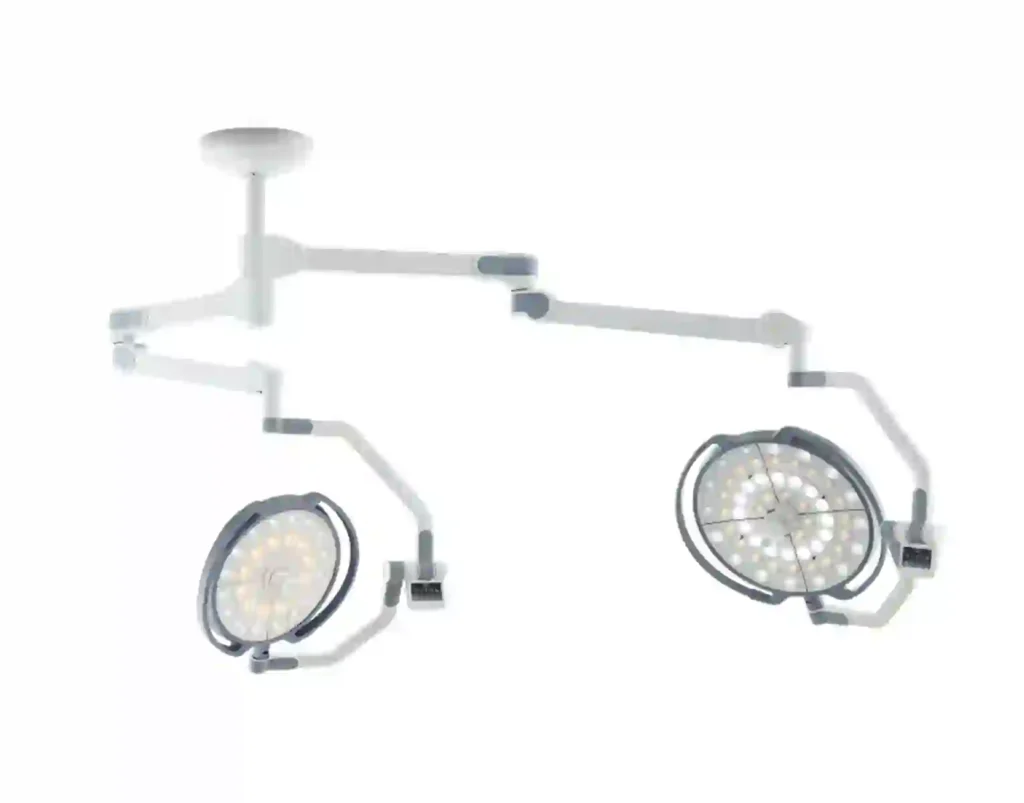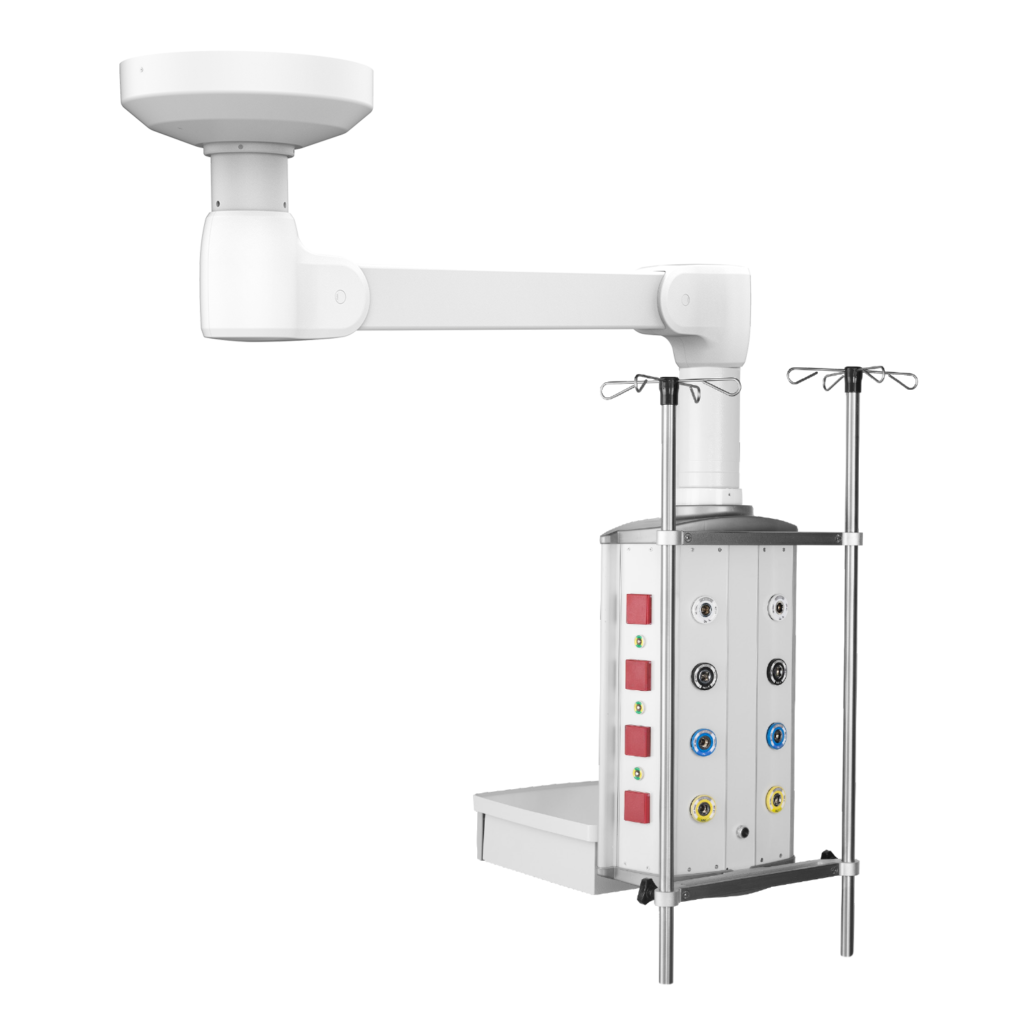Terms and Conditions
General Terms and Conditions
Scope, General
1.1 Unless expressly agreed otherwise, the following “General Terms and Conditions” apply in business transactions with entrepreneurs within the meaning of Section 14 of the German Civil Code (BGB).
1.2 Deviations from these terms and conditions can be made if confirmed in writing by the contractor.
For a current order, as well as all future orders, our general terms and conditions apply exclusively. These also apply if they are not agreed upon again. Terms and conditions of third parties have no validity, even without separate objection. These terms and conditions also apply if
These terms and conditions also apply if the contractor carries out the delivery to the client without reservation, even if the contractor is aware of conflicting or deviating conditions of the client.
1.3 The terms and conditions valid at the time of contract conclusion always apply, unless separate agreements are made again. The terms and conditions also apply to all future deliveries, services, or offers to clients.
2. Offers, Contract Conclusion
2.1 As long as offers do not have a specific acceptance period or are not expressly marked as binding, they are non-binding and subject to change. A contract is only concluded, subject to no further special agreement, with the written order confirmation of the contractor
2.2 The agreed scope of services is binding in connection with an order confirmation. The contractor may agree to subsequent changes. These only become effective with a written confirmation from the contractor. Subsequent changes are only effective with a written confirmation from the contractor.
2.3 All descriptions in connection with the contract (e.g., service description) do not automatically assume a guarantee, unless otherwise regulated. An assumption of guarantee only exists if it is recorded in writing by the contractor.
2.4 Deviations (from illustrations, drawings, dimensions, or weight specifications) may occur. Exceptions are those expressly designated as binding. Specifications are descriptions of delivery and service and not guaranteed procurement measures.
2.5 All information, cost estimates, drawings, or files and data (physical or non-physical) issued by the contractor may not be passed on to third parties and are protected by property and copyright law.
2.6 The contractor is entitled to perform or provide outstanding deliveries or services only against advance payment or security if, after conclusion of the contract, circumstances become known which are likely to significantly reduce the creditworthiness of the client and through which the payment of the contractor’s open claims by the client from the respective contractual relationship (including from other individual orders for which the same framework contract applies) is endangered.
3. Confidentiality
The client undertakes to maintain confidentiality about all business, operational, and technical matters of the contractor that have become known or will become known in connection with the delivery, even beyond the end of the contractual relationship.
4. Prices, Payment Terms
4.1 Prices are in EURO ex works 40878 Ratingen (EXW according to Incoterms 2020) plus packaging, statutory value-added tax, for export deliveries plus customs duties and fees
and other public charges. The deduction of discounts is only permissible with special written agreement.
4.2 The client has to bear the costs of payment. Invoices are to be paid without deduction in the agreed currency, unless otherwise agreed.
4.3 Payment arrears are to be charged with the statutory default interest, regardless of fault on the part of the client. In case of default, the legal rights to compensation and withdrawal from the contract remain reserved. After the onset of default, EUR 5.00 per reminder will be charged, unless higher costs have been incurred or lower costs are proven by the client.
4.4 The contractor reserves the right to use payments to settle the oldest due invoice items plus accrued interest and costs, in the order: costs, interest, main claim.
4.5 Unless otherwise agreed, payment for deliveries and services of the contractor to foreign countries must be made by irrevocable and confirmed letter of credit from a major European bank, payable in favor of the contractor against presentation of documents at this bank. The costs for payment by letter of credit shall be borne by the client.
4.7 For reconditioned parts that are as good as new, if the contractor reconditions the parts, according to the Value Added Tax Act, in addition to the exchange amount, 10 percent of the goods value must be subjected to VAT as the value of old parts. The VAT can be charged to the client.
4.8 Additional fee for small orders: For small orders with a goods value below EUR 100.00 (net), the contractor is entitled to charge a processing fee of EUR 15.00 plus statutory VAT.
5. Delivery and Delivery Time
5.1 Deliveries are made ex works 40878 Ratingen (EXW according to Incoterms 2020).
5.2 The contractor is entitled to make partial deliveries, as far as this is reasonable for the client. The partial delivery is reasonable for the client if,
the partial delivery is usable for the client within the contractual purpose,
the delivery of the remaining ordered goods is ensured and
the client does not incur significant additional effort or costs (unless the contractor agrees to bear these costs).
5.3 Adherence to the deadline for deliveries and services presupposes that all commercial and technical questions between the contractor and the client have been clarified and the client has fulfilled all obligations incumbent upon him, such as providing documents to be procured by him, other contributions, approvals or releases, or making a down payment. If this is not the case, the delivery time shall be extended accordingly. This does not apply if the contractor is responsible for the delay.
5.4 The delivery time is met if the delivery item has left the factory or readiness for dispatch has been reported by the expiry of the deadline. If acceptance is to take place, the acceptance date is decisive – except in the case of justified refusal of acceptance – alternatively, the notification of readiness for acceptance.
5.5 If the dispatch or acceptance of the delivery item is delayed for reasons for which the client is responsible, the costs incurred due to the delay will be charged to him within one month after notification of readiness for dispatch or acceptance.
5.6 The period for deliveries and services shall be extended appropriately in the event of force majeure for the duration of the hindrance, in particular in the case of natural events, machine breakdowns and other operational disruptions, in the case of measures taken in the context of labor disputes, in particular strikes and lockouts, as well as in the event of unforeseeable obstacles and in the case of incorrect or untimely self-delivery, insofar as the contractor is not responsible for this. If such events make delivery or performance significantly more difficult or impossible for the contractor and the hindrance is not only of temporary duration, the
contractor is entitled to withdraw from the contract. Insofar as the client cannot reasonably be expected to accept the delivery or service as a result of the delay, he may withdraw from the contract by immediate written declaration to the contractor.
5.7 For deliveries to countries of the European Union, the client is obliged to inform the contractor of his VAT identification number (VAT ID) at the latest when placing the order.
5.8 If the contractor is in default with a delivery or service or if a delivery or service becomes impossible for him, for whatever reason, the contractor’s liability for damages is limited in accordance with section 10.
6. Shipping, Packaging, Transfer of Risk
6.1 Unless otherwise agreed, the contractor delivers ex works 40878 Ratingen (EXW according to Incoterms 2020), excluding packaging.
6.2 The risk of accidental loss or accidental deterioration shall pass to the client at the latest when the delivery item is handed over (whereby the start of the loading process is decisive) to the forwarding agent, carrier or other third party designated to carry out the shipment. This also applies if partial deliveries are made or the contractor has assumed other services (e.g. shipping or installation). If dispatch or handover is delayed due to a circumstance caused by the client, the risk shall pass to the client from the day on which the delivery item is ready for dispatch and the contractor has notified the client of this.
6.3 If the contractor carries out the assembly and/or commissioning of the delivery items as part of the delivery contract, the risk shall pass to the client upon commissioning.
If commissioning does not take place within 14 days after written notification of the completion of assembly for reasons for which the contractor is not responsible, the risk shall pass to the client after expiry of this period. If the assembly and/or commissioning is delayed for reasons for which the client is responsible, the risk shall pass to the client.
6.4 When software is provided via electronic communication media (e.g., via the Internet), the risk transfers when the software leaves the contractor’s sphere of influence.
7. Acceptance
7.1 If the client is prevented from carrying out the acceptance due to circumstances as described in clause 5.6 of these terms and conditions, the deadline for acceptance as well as the deadline for objection according to clause 8.2 shall be extended to a reasonable extent.
7.2 Insofar as acceptance is to take place, the purchased item is deemed accepted when
the delivery and, if the contractor also owes the installation, the installation is completed,
the contractor has notified the client of this with reference to the deemed acceptance according to this clause 7.2 and has requested acceptance,
two weeks have passed since the delivery or installation or the client has started using the purchased item (e.g., by putting it into operation) and in this case six working days have passed since delivery or installation and
the client has failed to accept within this period for a reason other than a defect notified to the contractor that makes the use of the purchased item impossible or significantly impairs it.
8. Notice of Defects, Warranty, Material Defects
8.1 The client’s warranty claims expire 24 months after delivery of the delivered item unless otherwise agreed in individual cases.
8.2 Unless otherwise agreed in the following or in individual contracts, the client’s warranty rights presuppose that the client has duly complied with its duties of inspection and objection owed under § 377 HGB (German Commercial Code).
8.3 The client must carefully inspect the delivered items immediately after delivery to them or to the third party designated by them; in particular to determine shortages and transport damage. In the case of transport damage, a damage report must be prepared to secure any claims for damages against the transport company (post office, railway, freight forwarder, etc.). This damage report must be communicated to the contractor immediately.
8.4 Externally visible damages must be reported to the contractor in the case of deliveries ex works Ratingen 40878 (EXW according to Incoterms 2020) before loading by the client or their transport service provider and in the case of delivery by the contractor upon delivery of the item to the contractor’s transport service provider.
8.5 With regard to hidden defects, the delivered items are deemed to be approved by the client if the notice of defect is not received by the contractor immediately and at the latest within two weeks after the time at which the defect became apparent; however, if the defect was already recognizable to the client at an earlier time during normal use, this earlier time is decisive for the start of the notice period.
8.6 At the contractor’s request, a disputed delivery item must be returned to the contractor freight prepaid. In the case of justified complaints, the contractor will reimburse the costs of the most favorable shipping method; this does not apply if the costs increase because the delivery item is located at a place other than the place of intended use according to the order.
8.7 In the case of material defects of the delivered items, the contractor is initially obliged and entitled to repair or replacement delivery at its discretion within a reasonable period. In the event of failure, i.e., impossibility, unreasonableness, refusal or unreasonable delay of the repair or replacement delivery, the client can withdraw from the contract or reduce the purchase price appropriately.
8.8 There is no defect insofar as the item is suitable for normal use and has a quality that is usual for items of the same type and could be expected by the client. The usability of disposable products is limited to
the first use. Furthermore, there is no material defect in the case of incorrect assembly instructions if the assembly has been carried out without errors. If the contractor delivers a slightly different quantity of items (up to 5% deviations) than agreed in the contract, this does not constitute a material defect. A material defect also does not exist in the case of unsuitable or improper use, incorrect storage, faulty assembly or commissioning by the client or third parties, natural wear and tear, faulty or negligent handling, improper maintenance, use of unsuitable operating materials, defective construction work as well as chemical, electrochemical or electrical influences for which the contractor is not responsible.
8.9 If a defect is due to the fault of the contractor, the client can demand compensation under the conditions and limitations specified in clause 10.
8.10 In the case of defects in components from other manufacturers that the contractor cannot remedy for licensing or factual reasons, the contractor will, at its discretion, assert its warranty claims against the manufacturers and suppliers for the account of the client or assign them to the client. Warranty claims against the contractor for such defects exist under the other conditions and in accordance with these General Terms and Conditions only if the legal enforcement of the aforementioned claims against the manufacturer and supplier was unsuccessful or, for example due to insolvency, is futile. During the duration of the legal dispute, the statute of limitations for the client’s warranty claims against the contractor is suspended.
8.11 Replaced parts become the property of the contractor. The contractor already agrees to the (re-)transfer of ownership.
8.12 The warranty is void if the client modifies the delivery item or has it modified by third parties without the contractor’s consent and this makes the removal of defects impossible or unreasonably difficult. In any case, the client shall bear the additional costs of remedying the defect resulting from the modification. If the client or a third party carries out improper repairs, the contractor shall not be liable for the resulting consequences. The same applies to changes to the delivery item made without the prior consent of the contractor or to an expansion of software by the client or a third party
beyond the interface provided by the contractor. Only in urgent cases of endangering safety or to avert disproportionately large damages, whereby the contractor must be notified immediately, does the client have the right to remedy the defect himself or have it remedied by third parties and to demand compensation from the contractor for the necessary expenses.
8.13 Any delivery of used items agreed with the client in individual cases is made under exclusion of any warranty for material defects.
8.14 Software: The client has checked before conclusion of the contract that the specifications of any supplied software correspond to his wishes and needs. He is aware of the essential functional features and conditions of the software. Product descriptions, representations, test programs, etc. are performance descriptions, but not guarantees (cf. sections 2.4, 2.5). A functional impairment of the program resulting from hardware defects, environmental conditions, or incorrect operation is not a defect. An insignificant reduction in quality remains disregarded. Furthermore, a defect does not exist in the case of non-reproducible software errors as well as errors that do not occur in the software version last provided to the customer by the contractor, provided that the use of the last provided software version is reasonable for the customer.
9. Goods on Approval, Trial Goods, Bridging Goods
9.1 Goods supplied by the contractor for inspection, trial, or bridging remain the property of the contractor and may not be sold to third parties without the written consent of the contractor. The client of the corresponding goods is liable for losses and damages, insofar as he is responsible for them or insofar as such damages are insurable.
9.2 The client undertakes to treat the goods lent for inspection (‘goods on approval’) with care. Within the period specified in the order confirmation and/or on the delivery note, the client has the right to return the goods on approval to the contractor, provided they are unused, have not been reprocessed (cleaning, disinfection, sterilization) and are in the undamaged and unmarked original packaging. If the return is not made immediately after the expiry of the specified period at the client’s own expense
and risk or if the goods on approval do not correspond to the condition described above, the purchase contract for the goods on approval is deemed to have been concluded. In this case, the client will receive a separate invoice for this.
9.3 The client undertakes to handle the goods lent for trial (‘trial goods’) properly and with care according to the manufacturer’s specifications and bears the costs for consumables beyond the basic equipment. Within the period specified in the order confirmation and/or on the delivery note, the client has the right to return the trial goods to the contractor, provided they are undamaged, reprocessed according to the manufacturer’s specifications (i.e., cleaned, disinfected, and if necessary sterilized) and properly packaged. If the return is not made immediately after the expiry of the specified period at the client’s own expense and risk or if the trial goods do not correspond to the condition described above – in particular as a result of excessive use – the purchase contract for the trial goods is deemed to have been concluded. In this case, the client will receive a separate invoice for this.
9.4 The customer commits to handling the goods loaned to bridge the repair time (‘bridging goods’) with care and using them as intended according to the manufacturer’s specifications. A usage fee will be charged if the contractor does not receive a repair order from the customer or if the contractor receives the bridging goods back damaged or incomplete. If the return at the customer’s own expense and risk does not occur immediately after the expiry of the period stated in the order confirmation and/or on the delivery note, the purchase contract for the bridging goods is deemed to have been concluded. In this case, the customer will receive a separate invoice for this.
10. Liability for Damages Due to Fault
10.1 The contractor’s liability for damages – regardless of the legal grounds – in particular from impossibility, delay, defective or incorrect delivery, breach of contract, breach of duties during contract negotiations and tort is, insofar as it depends on fault in each case, limited in accordance with the following sections 10.1 to 10.6.
10.2 The contractor is not liable in the case of simple negligence of its organs, legal representatives, employees or other vicarious agents, unless it concerns a breach of essential contractual obligations, i.e., obligations whose fulfillment is essential for the proper execution of the contract and on whose compliance the contractual partner regularly relies and may rely, and whose culpable non-fulfillment endangers the achievement of the purpose of the contract.
10.3 Insofar as the contractor is liable for damages in principle according to section 10.2, this liability is limited to damages which the contractor foresaw at the time of conclusion of the contract as a possible consequence of a breach of contract or which he should have foreseen when applying due care. Indirect damages and consequential damages that are the result of defects in the delivered item are also only eligible for compensation if such damages are typically to be expected with the intended use of the delivered item.
10.4 The above exclusions and limitations of liability apply to the same extent in favor of the organs, legal representatives, employees and other vicarious agents of the contractor.
10.5 The limitations of this section 10 do not apply to the contractor’s liability for intentional behavior, gross negligence, for defects whose absence the contractor has
assured or guaranteed, or which the contractor has fraudulently concealed, for injury to life, body or health or under the Product Liability Act.
10.6
To prevent or limit damages, the customer must take all necessary and reasonable measures. In particular,
the customer must ensure regular backup of programs and data.
11. Offsetting, Right of Retention
The right to withhold payments or to offset against counterclaims is only available to the customer to the extent that his counterclaims are undisputed or legally established. Other rights of retention can only be asserted insofar as they are based on the same contractual relationship. Rights of retention due to defects may only be asserted under the above conditions in reasonable proportion to the defects that have occurred.
12. Industrial Property Rights and Copyrights, Legal Defects
12.1 Unless otherwise agreed, the contractor is obliged to provide the delivery free from industrial property rights and copyrights of third parties (‘protective rights’). If a third party raises justified claims against the customer due to the infringement of protective rights by deliveries made by the contractor and used in accordance with the contract, the contractor shall be liable to the customer within the period specified in section 8.1 of these terms and conditions according to the following provisions.
12.2 The contractor will, at his choice and expense, either obtain a right of use for the relevant services, modify them so that the protective right is not infringed, or replace them while continuing to fulfill the contractually agreed functions. If this is not possible for the contractor under reasonable conditions, the customer is entitled to withdraw from the contract or to reduce the purchase price appropriately. Any claims for damages are subject to the limitations of sections 10 to 10.6 of these terms and conditions. The above obligations only exist insofar as the customer immediately notifies the contractor in writing of the claims asserted by the third party, does not acknowledge an infringement to the third party and all defensive measures and settlement negotiations remain reserved for the contractor. If the customer discontinues the use of the service, he is obliged to point out to the third party that the discontinuation of use is not associated with an acknowledgment of an infringement of protective rights.
12.3 Claims of the client are excluded if the infringement of property rights is caused by specifications of the client, by an application not foreseeable by the contractor, by a modification by the client, or by use of the service together with products not supplied by the contractor.
12.4 In all other respects, sections 8 to 8.14 of these terms and conditions apply accordingly for legal defects. The customer’s claims for damages are subject to the limitations of sections 10 to 10.6 of these terms and conditions.
13. Retention of Title
13.1 The contractor retains ownership of the delivered goods (hereinafter: ‘Reserved Goods’) until payment of all liabilities of the client from the business relationship, including ancillary claims, claims for damages, and redemption of checks and bills of exchange. (If individual claims are included in a current account, the retention remains and relates to the acknowledged balance.)
13.2 The client is obligated to carefully store the Reserved Goods for the contractor, to maintain them at their own expense and – subject to a warranty by the contractor for material defects according to section 8 of these General Terms and Conditions – to repair them, as well as to adequately insure them at replacement value against theft, breakage, fire, water, and other damages at their own expense to the extent required of a prudent businessman, and to prove this upon request. The client hereby assigns their claims from the insurance contracts to the contractor in advance.
13.3 In case of behavior contrary to the contract by the client, especially in case of default of payment, the contractor is entitled to take back the delivered item without setting a grace period. The taking back of the item by the contractor constitutes a withdrawal from the contract. If the contractor withdraws from the contract, the contractor can demand appropriate compensation for the duration of the provision of the Reserved Goods for use, corresponding to the usual value of the provision for use, taking into account the depreciation that has occurred in the meantime. The client hereby grants the contractor access to their business and operating premises, insofar as this is necessary for the collection of the delivery items.
Further legal claims resulting from the withdrawal remain unaffected.
13.4 The contractor is free to seize the delivery item. This does not constitute a waiver of the retention of title. In case of refusal of seizure, the client loses their right to contract fulfillment.
13.5 In case of seizures or other interventions by third parties on the Reserved Goods or, in case of extended retention of title, assigned claims, the client must immediately notify the contractor in writing so that the contractor can file a lawsuit according to § 771 ZPO (German Code of Civil Procedure). The costs arising from the intervention, especially the court and out-of-court costs of a lawsuit according to § 771 ZPO, are to be reimbursed to the contractor by the client in case of non-collectibility.
13.6 The client may not sell, encumber, or otherwise dispose of the item until full payment has been made, unless they are a reseller in the sense of section 13.7.
13.7 The following additionally applies for resales:
a) The client is entitled to sell the Reserved Goods in the ordinary course of business. However, this does not apply if and to the extent that a prohibition of assignment regarding the purchase price claim has been agreed between the client and their customers. The client is not entitled to pledges, security transfers, or other encumbrances. When reselling, the client must make the transfer of ownership dependent on the full payment of the goods by their customers.
b) The client hereby assigns the claims from a resale of the Reserved Goods to the contractor as security for all claims arising for the contractor against the client from the business relationship. The claims from a resale include all ancillary and security rights including bills of exchange and checks. If Reserved Goods are sold together with other items for a total price, the assignment is limited to the proportional amount of the contractor’s invoice for the co-sold Reserved Goods. The same applies in the case of processed or mixed goods,
according to the ratio of the invoice value of our goods to the invoice value of the other processed or mixed goods.
c) The customer is entitled to collect the claims from a resale themselves. The contractor’s authority to collect the claim themselves remains unaffected by this. However, the contractor commits not to collect the claim as long as the customer fulfills their payment obligations from the received proceeds, does not default on payment, and in particular, no application for the opening of insolvency proceedings has been filed. If the customer’s collection authorization has expired, they must, at the contractor’s request, disclose the assigned claims and their debtors, provide all information necessary for collection, hand over the associated documents, and inform the debtors of the assignment.
13.8 The contractor commits, at the customer’s request, to immediately release the securities to which they are entitled, at their discretion, to the extent that their value exceeds the claims to be secured by more than 50%, not just temporarily.
13.9 Through processing, the customer does not acquire ownership of the wholly or partially manufactured items; the processing is carried out free of charge exclusively for the contractor as manufacturer in the sense of § 950 BGB (German Civil Code). Should the retention of title nevertheless expire due to any circumstances, the customer and the contractor already agree now that the ownership of the items passes to the contractor upon processing, the contractor accepts the transfer of ownership, and the customer remains the custodian of the items free of charge.
13.10 If the reserved goods are processed or inseparably mixed with goods still owned by third parties, the contractor acquires co-ownership of the new items or the mixed stock. The extent of co-ownership results from the ratio of the invoice value of the delivered reserved goods to the invoice value of the other goods. In all other respects, sections 13.1 to 13.8 apply to the cases of sections 13.9 and 13.10.
14. Safety Regulations
The customer is responsible for compliance with national laws, regulations, and safety-related provisions, installation, operation, maintenance, and repair of the delivered items, particularly
the medical device regulatory provisions and is obligated to fulfill these. The customer is obligated to indemnify the contractor from all claims arising from non-compliance with such regulations by the customer.
15. Applicable Law, Jurisdiction, Severability Clause, Language
15.1 German law applies to the contractual relationships with the customer. The applicability of the UN Convention on Contracts for the International Sale of Goods (CISG) is excluded.
15.2 The place of jurisdiction for all possible disputes arising from the business relationship between the contractor and the customer is, at the contractor’s choice, the competent court at the contractor’s place of business or the customer’s registered office. For lawsuits against the contractor, however, the contractor’s place of business is the exclusive place of jurisdiction in these cases.
15.3 It is precautionarily declared that the authoritative text is only that which is written in the German language.
